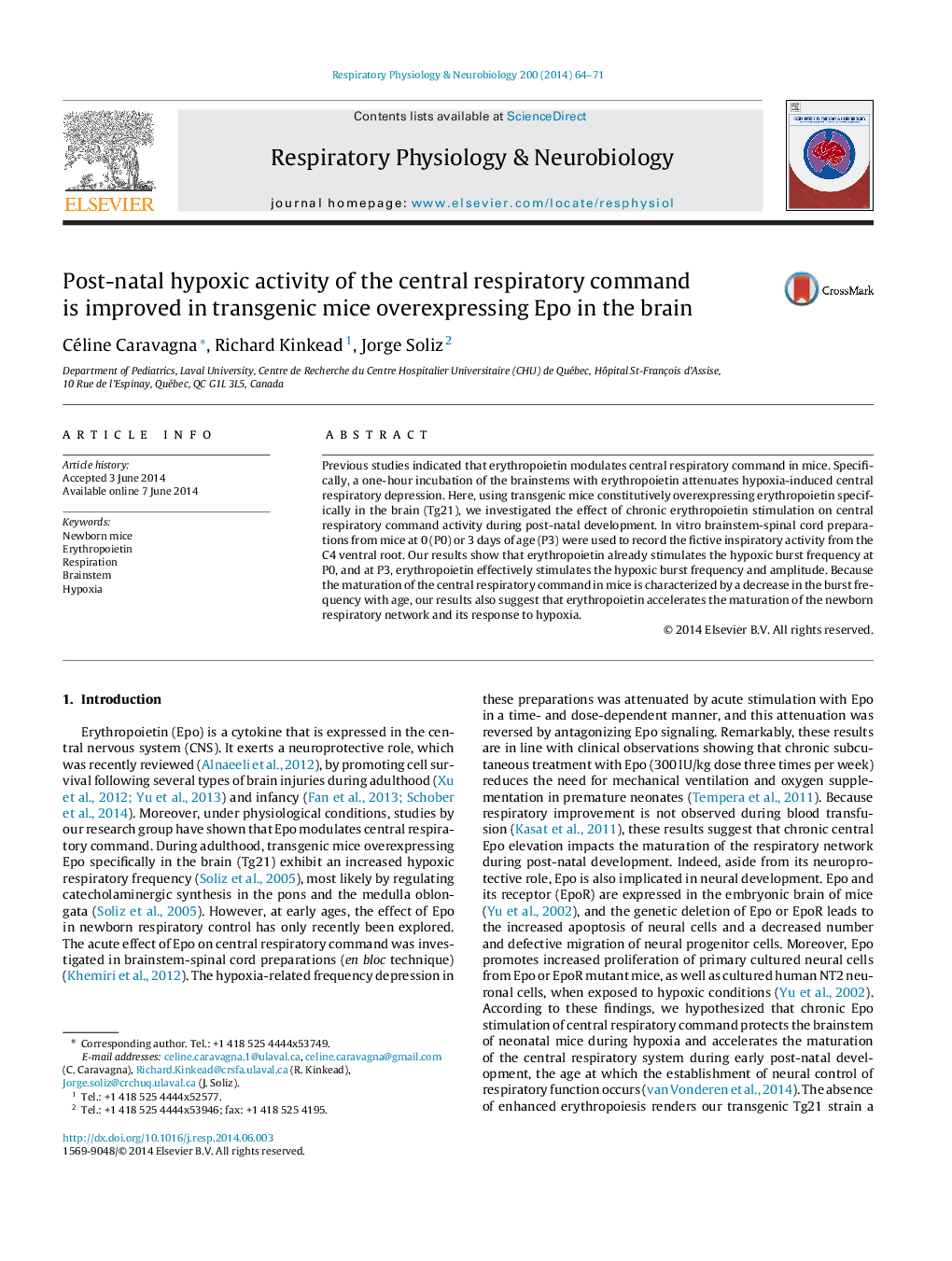| Article ID | Journal | Published Year | Pages | File Type |
|---|---|---|---|---|
| 2846998 | Respiratory Physiology & Neurobiology | 2014 | 8 Pages |
•Mice overexpressing erythropoietin (Epo) in the brain are studied.•The impact of Epo on neonatal central respiratory control is assessed.•Epo may accelerate the maturation of the central respiratory control at birth.•Epo reduces the central respiratory depression due to hypoxia in newborn mice.
Previous studies indicated that erythropoietin modulates central respiratory command in mice. Specifically, a one-hour incubation of the brainstems with erythropoietin attenuates hypoxia-induced central respiratory depression. Here, using transgenic mice constitutively overexpressing erythropoietin specifically in the brain (Tg21), we investigated the effect of chronic erythropoietin stimulation on central respiratory command activity during post-natal development. In vitro brainstem-spinal cord preparations from mice at 0 (P0) or 3 days of age (P3) were used to record the fictive inspiratory activity from the C4 ventral root. Our results show that erythropoietin already stimulates the hypoxic burst frequency at P0, and at P3, erythropoietin effectively stimulates the hypoxic burst frequency and amplitude. Because the maturation of the central respiratory command in mice is characterized by a decrease in the burst frequency with age, our results also suggest that erythropoietin accelerates the maturation of the newborn respiratory network and its response to hypoxia.
